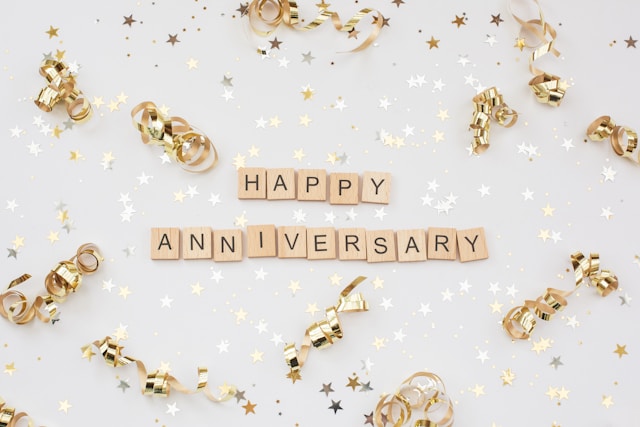
For those of us who still give cards for occasions such as birthdays, Father’s Day, anniversaries, Valentine’s Day, etc., deciding on an appropriate card for our recovering sex addict can be challenging. Acknowledging certain occasions with the addict can sometimes cause triggers or depression, especially at the beginning of the healing journey. What was once second nature when it came to buying a card or celebrating special occasions with our partner is now a challenge. We may find ourselves wondering – What kind of (Valentine’s, Anniversary, or Birthday) card should I buy for my recovering addict? Should we celebrate our anniversary or Valentine’s Day, and if so, how do we do that with this dark cloud of reality over our shoulders? You do have choices as to what to acknowledge and what not to acknowledge. Furthermore, you get to decide how you would like to acknowledge occasions without feeling like you’re just going through the motions.
I received my disclosure in October, which meant I would be celebrating Thanksgiving a month later. I didn’t feel very celebratory while preparing for the holiday, but I also didn’t want to be miserable on Thanksgiving either. Thankfully, my sister insisted on coming to visit for the holiday after learning about my husband’s addiction. I warned her ahead of time that I couldn’t promise what I would be like. Having my sister at our home for Thanksgiving was a nice distraction from what I was experiencing. I chose to focus on enjoying her presence and making the holiday nice for my children. My husband’s betrayals had already taken so much from me. I didn’t want the impact of his addiction to trickle into the holiday.
I had to take the same approach with Christmas a month later. We usually went out of state for the holiday to spend it with my parents. I knew I wanted to see them; it would be the first time they saw me in person since they learned about my husband’s addiction. My husband and I discussed whether he should come or not, but ultimately, I left the decision to him. My husband knew my parents knew about his addiction, yet surprisingly, my husband still wanted to come. It was easier for my husband to accompany us for Christmas at my parents’ than to explain to our children why Dad wasn’t coming. My parents said they wouldn’t say anything to him. My parents have always approached my husband with a “follow our daughter’s lead mindset. If I were still in the marriage, trying to figure things out, they would respect that. My parents were more concerned about seeing their daughter and making sure I was okay than saying anything to my husband.
Christmas wasn’t as awkward as I thought it would be. I didn’t break down, curse my husband, or erupt. Celebrating Christmas in a different location, being around family who knew what I was going through, was helpful. I chose to enjoy my family and friends rather than worrying about what the future held for us. After all, the healing work of betrayal trauma wasn’t going anywhere; it would be waiting for me when we returned home. If necessary, I could use my tools such as praying, breathing, meditating, referring to a book about healing from betrayal trauma, or stepping away from everyone. This isn’t to say celebrating Christmas wasn’t difficult at times, but I was equipped to get through it, easing my anxiety.
Father’s Day was a little trickier. I wanted to acknowledge my husband on his special day, especially in front of our children, but thoughts such as: a good father doesn’t risk his life and the life of his wife in the name of self-soothing, possibly leaving their children without either parent, crept into my mind. I’d be lying if I said I never expressed this sentiment to my husband. However, I never stopped acknowledging Father’s Day because I believed my husband was a good father who was very sick. I always gave him a card, but it wasn’t always easy to find the right one. Over the years, celebrating Father’s Day without the intrusive thoughts has gotten easier. We’ve always had a nice meal at home or in a restaurant, with me encouraging the kids to buy their dad a gift. Today I can celebrate Father’s Day without the negative thoughts. My husband is a good father who my children adore. Father’s Day is a great opportunity to acknowledge what my husband does for our family and the type of father he continues to be to our children.
Anniversaries have been the hardest occasions to celebrate. There was no way I could bring myself to celebrate or acknowledge our anniversary for the first couple of years. I was angry, struggling with many thoughts such as: How many anniversary celebrations were just “going through the motions” for him? Did he love me? Why did he go through the effort of celebrating previous anniversaries with me, knowing what he was doing in his double life? Did he feel like a phony celebrating our anniversaries? These questions were hard because the truth was that my husband was pretty good about making anniversary plans. Now I find myself analyzing every previous anniversary.
However, I will tell you that each anniversary the past few years has been a significant acknowledgment that we are still together and working on our healing as a couple, which is a big deal for us. It’s not so much about celebrating the number of years we’ve been married but our resilience, faith, and willingness to work as a couple.
Valentine’s Day was also out of the question for me. I found myself remembering all the special Valentine’s Day meals, cards, flowers, and gifts, of the past with grief and sadness. I didn’t want anything from my husband in the beginning, and giving him something wasn’t even a thought. However, my husband continued to give me things for Valentine’s Day, regardless of whether or not I gave him something. Valentine’s Day wasn’t a huge celebration before receiving a disclosure, but we always did something in recognition of the day. If I’m being completely honest, I went through the motions on previous Valentine’s Days for the sake of my children the first couple of years, which changed with time.
I do wish card companies made cards more fitting for partners of sex addicts, such as the following:
I know it’s bumpy right now, but I’m glad we’re still trying
I’m glad we’re spending (Holiday/Occasion) together.
I’m looking forward to the day when healing as a couple isn’t so painful.
Despite your betrayals, I appreciate the way you care for our children.
I’m thankful your addiction didn’t lead you to molest our children.
I’m thankful your addiction didn’t land you in jail.
I’m thankful your addiction didn’t cause you to lose your job.
The kids know about your addiction, but don’t worry, they still love and appreciate you.
I’m hoping this experience will bring us closer together.
I trust you more now.
We made it another year healing as a couple.
I appreciate your efforts to stay sober. “I’m thankful we are both healing.”
I’m glad we are better than we used to be.
I’m thankful there is real honesty in our relationship now.
Today, I don’t struggle much with any of the holidays or occasions I highlighted in this blog entry, but it’s been a process to get to where I am today. On rare occasions, a negative thought enters my mind, and I can manage it well. However, my kids are young adults now, they know a little more than they did before, so there is no “faking the funk” to protect them from the truth anymore. If I see a card that’s appropriate for the occasion, I buy it, and if I don’t, I write in a blank card or don’t give him one, not out of spite, but acknowledging that finding the right card is not always easy. I want to give my husband a card that acknowledges where we’ve been while celebrating how far we’ve come with anticipation of what the future could look like for us. This doesn’t just apply to buying cards for my husband, but how I approach celebrating holidays and occasions with him.
Let me say, if acknowledging holidays or certain occasions is a struggle for you, it’s okay – you’re normal. Living your truth sometimes means your partner may or may not get a card or verbal acknowledgment, whether or not children are in the picture, because sometimes you can’t do it. Your situation with your recovering sex addict may mean you may choose to celebrate an occasion differently than you did before. What’s important is acknowledging what the occasion is bringing for you and choosing to participate in a celebration or holiday in a way that acknowledges where you are without feeling like you have to minimize the impact of your partner’s addiction. Furthermore, things do change. The way you feel during special occasions may change month by month or year by year. I’ve engaged with my husband in different ways over the years since learning of his addiction.
Over the years, I’ve come to a few thoughts about celebrating holidays or occasions with a recovering sex addict that helped me that might help you as well:
- One has to be honest with themselves and acknowledge what they are and aren’t capable of when it comes to celebrating or not celebrating the occasions.
- If children are involved, there is nothing wrong with discussion or a plan for how to handle holidays or occasions that won’t hurt the children but not minimize where you are in your healing either. Abandoning your needs or desire for safety at the expense of your children would be a codependent action.
- You may need to adjust your approach while celebrating or recognizing a holiday. For some people, that may mean not celebrating with as many people, letting people know which topics aren’t on the table for discussion. Asking the sex addict to come to an occasion, but not to stay long if you aren’t currently living in the same residence.
- Celebrating holidays or occasions with safe people can be reassuring. It’s nice to know one other person knows what’s going on to keep an eye on you.
- It’s also not a bad idea to run any concerns or uneasiness by an accountability partner, therapist, or trusted friend, so you don’t feel trapped or feel like you have to bury yourself for the benefit of others – also a codependent action.
- I always had tools in mind I could use if I found myself upset.
- Make a plan that allows you to engage while feeling safe.
- I also don’t think there is anything wrong with focusing on the present while acknowledging the pain you are experiencing. You can choose to put them on hold, knowing you will tackle them later, so you can enjoy family, friends, or other parts of the occasion as well. There is a difference between burying something and putting it “on hold”.
If you are divorced or separated with children, it may mean that how you interact with your ex at holidays and celebrations will be different. However, you can celebrate in a way that feels safe to you while allowing your children to still enjoy the occasions or holidays. Although this is easier said than done, keeping the goal of acknowledging a holiday or occasion while honoring where you are in your healing process is very important.
It’s fair to say choosing to acknowledge a holiday or occasion with your recovering addict doesn’t mean everything is perfect or you’re getting soft. You can celebrate knowing you are both healing, but allowing yourselves to enjoy holidays and occasions along the way without placing any judgment on you or your addict. You may find yourself thinking This holiday sucks, and I don’t even know what to say to my recovering sex addict. Be gentle and honest with yourself as you try to maneuver occasions and holidays with your recovering sex addict – this isn’t always easy, especially at the beginning, so give yourself the gift of grace when you select cards or decide on how to interact with your recovering sex addict while celebrating holidays or occasions.




